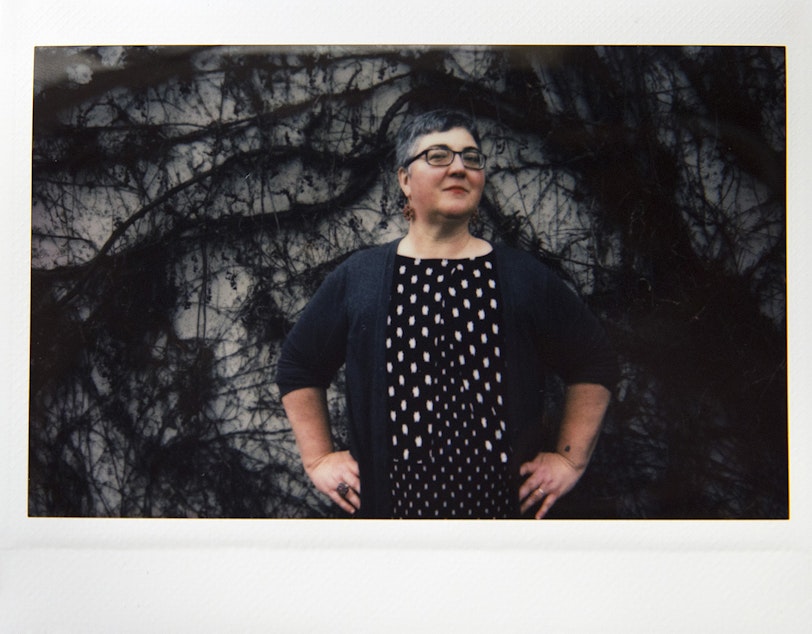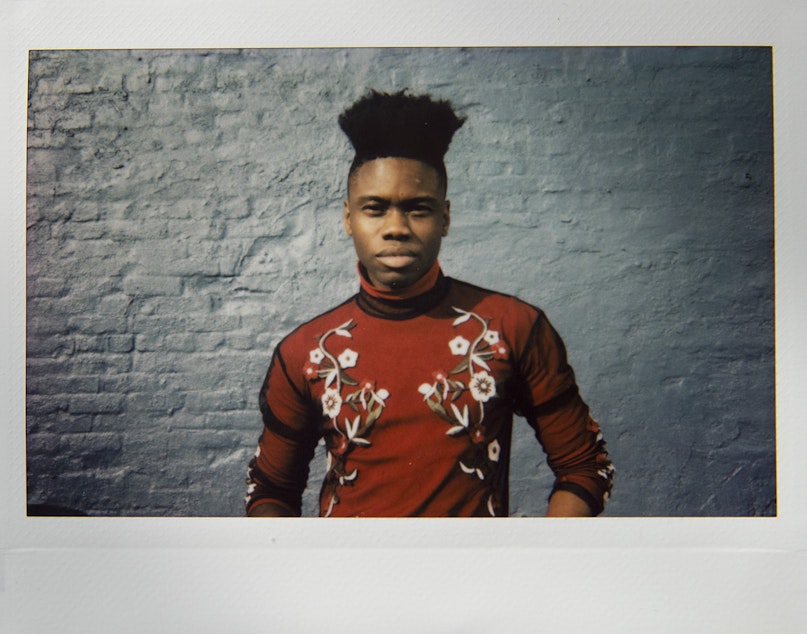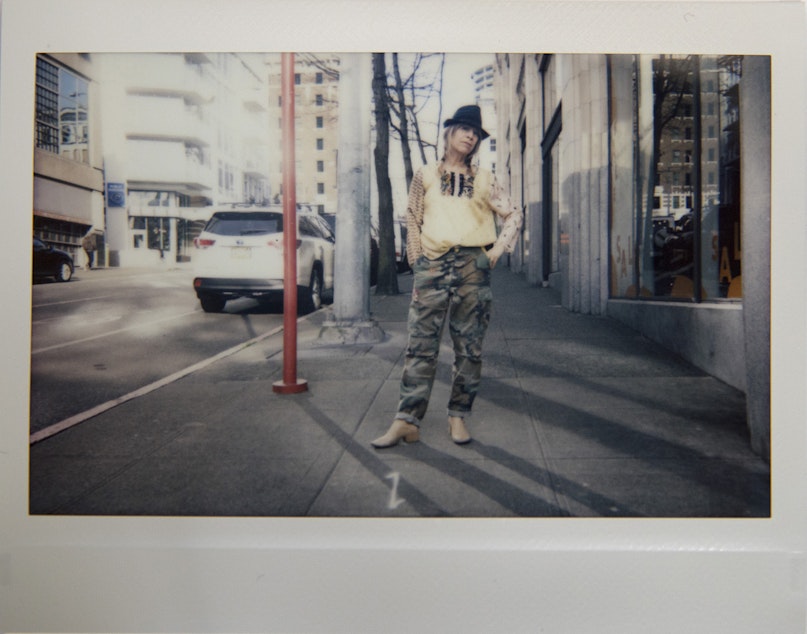Fashion while female: Seattle responds to #metoo and Trump

A month after Donald Trump was elected, Shauna Ahern, a writer from Vashon Island, was still angry.
So angry, she shaved her head. Then she pierced her ears, bought a tube of bright red Maybelline lipstick and started wearing a pair of red cowboy boots.
“These boots are loud,” Ahern said, demonstrating the firm clomp they make as she walked down the main drag on Vashon Island. She stopped for a moment. “I spent my first 20 years trying to make myself as quiet as possible,” she said.
Two years into Trump’s presidency, and the #metoo era, women like Ahern have decided to make noise. They write and speak about sexual violence and workplace harassment. And women have entered politics in increasing numbers; the 116th Congress has the largest female contingent in history, led by House Speaker Nancy Pelosi.
They’re also asserting themselves with their clothes.
Sponsored

A recent article about Sen. Kyrsten Sinema, Arizona’s newly elected Democratic lawmaker, pointed out her penchant for bright colors, bold patterns … and thigh-high, leather boots. Pelosi, who, at 78, is the most powerful woman in the federal government, strides through the halls of Congress in designer dresses or suits, often accessorized with chunky jewelry and stilettos. These women trumpet self-confidence and strength with what they wear.
It’s not just women in Congress, however. Sandy Lew-Hailer, owner of the downtown Seattle boutique, Sandy Lew, said she sees it at her store. “The women who come in here are anxious to be strong,” Lew-Hailer said.
Lew-Hailer’s store motto is “having fun getting dressed.” The racks sport quirky, one-of-a-kind clothing designed to be eye-catching and comfortable. Lew-Hailer believes that when a woman feels good in beautiful clothes, she’s announcing her presence to everyone who sees her.
“It’s showing the world, ‘here I am,’” Lew-Hailer said. “It’s also kind of a shield. ‘I’m ready, I’m here, and I’m armed.’”
Sponsored
Back on Vashon Island, Ahern’s clothing choices are a statement, but not just a response to Trump.
A year ago, Ahern had a prophylactic double mastectomy. She suffered some complications during the recovery, which she said gave her time to consider life. Ahern realized that in letting go of her large breasts, she was also letting go of a physical characteristic that had garnered her frequent—and mostly unwanted—male attention on the streets.
Post-mastectomy, she said she has felt more free to dress for herself, not to attract or deflect the male gaze. “Now I want to look like I feel: great.”

Ahern currently dresses in black and white, which sets off her red boots.
Sponsored
In Seattle, where the fashion stereotype is polar fleece and hiking boots, or functional sandals in the summer, there’s more glam on the streets: leopard print jackets, gold and silver lamé shoes, and jaunty, eye-catching hats. More women, and men, dress up for cultural events or a night at a special restaurant.
That may be a new thing for this straight-laced Scandinavian city, but fashion statements are de rigeur for African-American women, according to Seattle arts administrator and self-described fashion maven David Rue. “When there were laws where black women couldn’t wear their hair out, they said, ‘You don’t want to see my hair? Then you’ll see my glorious hat!’”
Rue, who works at Seattle Art Museum, welcomes the city’s new fashion consciousness.
But not every Seattle woman has traded her fleece for faux-fur. Jill Donnelly, owner of the longtime high-end Seattle shop Baby & Co., has noted what she calls the “tech uniform” — designer sneakers, dark leggings or skinny jeans and puffy coat. “Everybody has a sameness,” Donnelly said.
“A young woman came in, she was in the tech world, a software engineer,” she said. “She said, ‘I can’t wear these clothes; the guys would laugh at me.’”
Sponsored
Donnelly notes that while European designers use lots of color these days, here in the U.S., high-end clothing is more subdued, something she chalks up to Donald Trump’s presidency. Somber clothing to match a somber mood, in other words. “This is our first dictator,” she said.
Donnelly, and fellow retailer Sandy Lew-Hailer, don’t believe that women need to follow trends to be fashionable. Maybe you opt for red cowboy boots like Shauna Ahern.
Or, like Nancy Pelosi, a red wool coat.
“It’s about how you feel,” Lew-Hailer said, “not about how you think you’re supposed to feel. When you go out in the work it emboldens you.”
She paused and then laughed. “There’s nothing wrong with a bold woman.”




